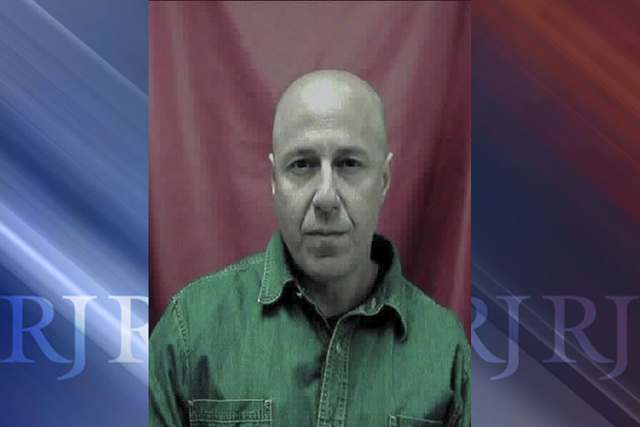Man convicted of rape, murder as a teen 32 years ago says he no longer wants DNA tests

For more than 32 years, Scotty Alan Sloan, imprisoned as a teenager, has proclaimed his innocence in the rape and murder of cosmetics saleswoman Nancy Menke.
Throughout the last half decade, attorneys from the Rocky Mountain Innocence Center fought prosecutors over DNA testing they said would show that he was not the killer.
Even after authorities said in 2009 that test results found Sloan’s semen inside the victim, the innocence group continued to dispute that claim.
Last year, the group asked for “a more sophisticated testing method designed specifically for use on degraded DNA evidence,” a method it said would provide more accurate results.
Ultimately, District Court Judge Jennifer Togliatti allowed the testing to go forward.
Then, abruptly after the judge granted the request, the lawyers pulled back.
Sloan, also referred to in documents as Scott Sloane, was done fighting, they said in court last week. Now he doesn’t want the tests.
“I just want to make sure I understand what’s happening,” the judge said. “You filed the post-conviction petition to deal with genetic marker testing, citing Judge (James) Bixler’s ruling, asking for additional relief. The state argued against it. I took it under advisement. I tried to order every record known to man. I made a ruling in your favor, and now you don’t want it.”
Sloan’s lawyer, Cynthia Alexander, replied, “That is correct.”
Chief Deputy District Attorney David Stanton, who has worked on the case for more than six years, said the timing of Sloan’s withdrawal is suspicious.
Despite the judge’s ruling at the end of March, Alexander never drew up court papers to show Togliatti had granted her request.
Twenty-one days later, Sloan appeared from a room at the Lovelock Correction Center on video conference before the Nevada Board of Parole. On May 4, 23 days before his 49th birthday, Sloan’s release was denied.
His lawyer, Cynthia Alexander, said Sloan’s repeated claims of innocence hurt a chance at parole for a man who’s been locked up since he was 16 years old.
She told the judge Sloan might want the tests performed sometime in the future. He’s up for his 12th parole hearing in 2018.
Stanton says the claims “ring of a strong tone of insincerity and lacking truth.”
The prosecutor blasted the Rocky Mountain Innocence Center for wasting time, effort and money.
“Their reputation and performance is an absolute joke,” Stanton said. “They should have no credibility. They didn’t vet this case. They don’t know what they’re talking about … And the thing that bothers me the most is that it brings disrepute to the good faith claims of actual innocence … The abuse of this process does violence to the people out there who have legitimate actual innocence claims.”
Alexander said Sloan asked the attorneys to withdraw the request for new testing as he pursues freedom.
“When you declare innocence like Mr. Sloan has for three decades that interferes with your ability to get parole,” she said, adding that Sloan was a teenager went he was convicted of sexual assaulting and killing 41-year-old Menke and given five life sentences. “So he has a difficult decision that none of us have, which is exoneration versus the possibility of getting out.”
The U.S. Supreme Court ruled earlier this year that anyone sentenced to life behind bars as a teenager should have a chance to argue for release from prison.
Stanton said parole boards cannot use innocence claims against a prisoner who was convicted at trial.
The prosecutor called the case against Sloan “one of the most egregious sexual assault murders that’s ever occurred in this city,” and aside from the DNA evidence, jurors had plenty of reason to convict him.
Menke was found dead inside her vehicle in 1984, shot in the head six times with a .25-caliber handgun. She was raped, handcuffed, strangled and beaten over the head with a large rock near Harmon and Tropicana avenues.
Jurors heard evidence that the handgun used to kill Menke belonged to Sloan’s mother, and police believed the handcuffs used to bind Menke were stolen from a Smith’s grocery store where Sloan worked.
On the night Menke disappeared, a sweaty Sloan arrived at a neighbor’s house covered in blood. Sloan told the neighbor that he had been robbed and kidnapped from the same mall from which Menke was missing.
After a jury handed down its verdict, the teenager turned to them with incredulity.
“I honestly thought my attorneys showed you people,” he said, according to news reports, “that it couldn’t have been me.”
Sloan exhausted appeals after his conviction, and Stanton said the case languished for years before the Rocky Mountain Innocence Center refreshed the innocence claim in requesting DNA tests.
“The evidence is overwhelming,” said Stanton, who plans to argue that Sloan should never be allowed to ask for further DNA analysis again.
Alexander argued that Sloan could renew the petition at any time.
The judge asked Sloan’s lawyer to file an affidavit to prove that he wanted to stop the tests, and is expected to hear further arguments in October.
Contact David Ferrara at dferrara@reviewjournal.com or 702-380-1039. Find @randompoker on Twitter.